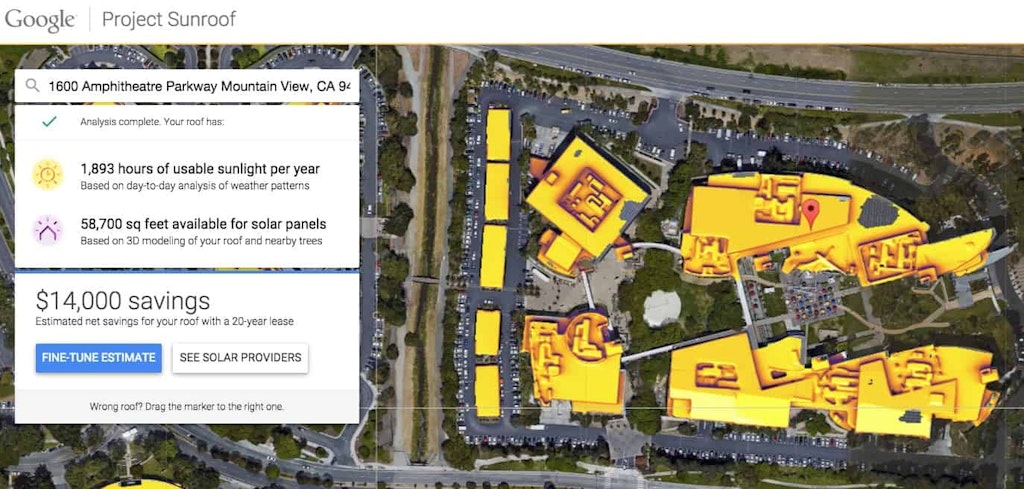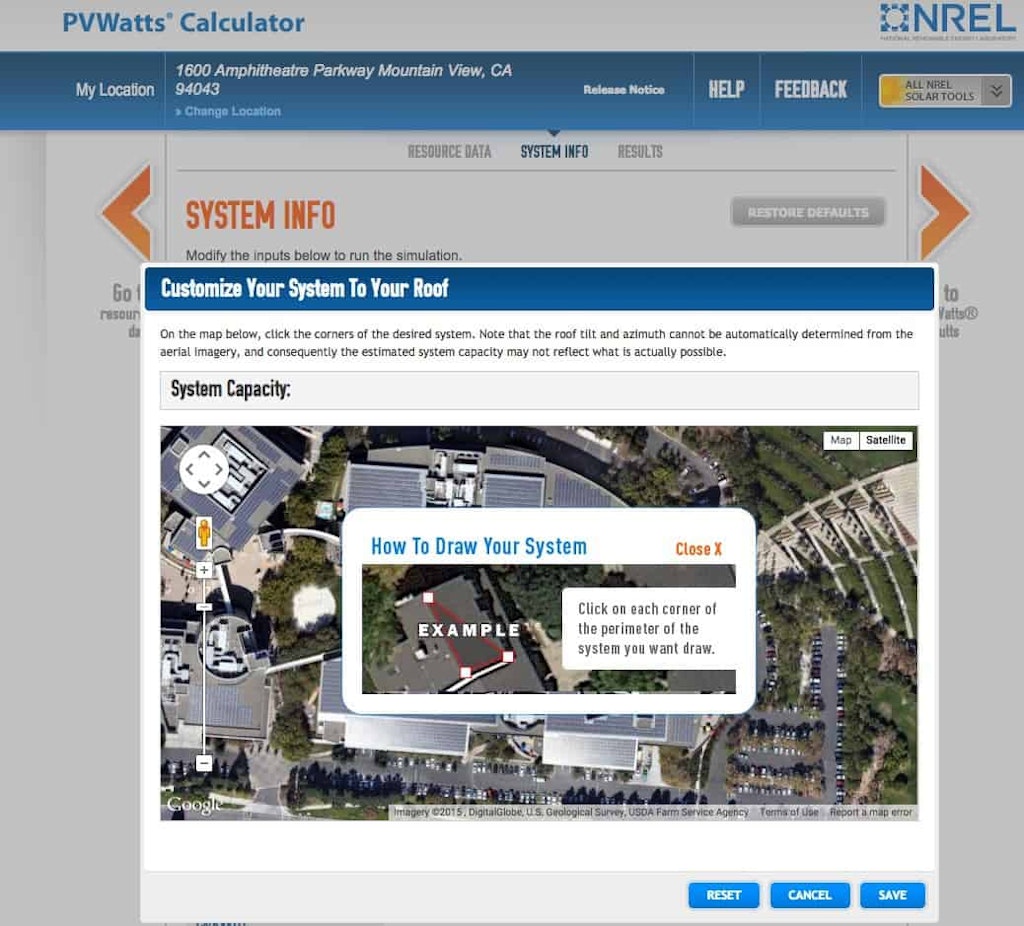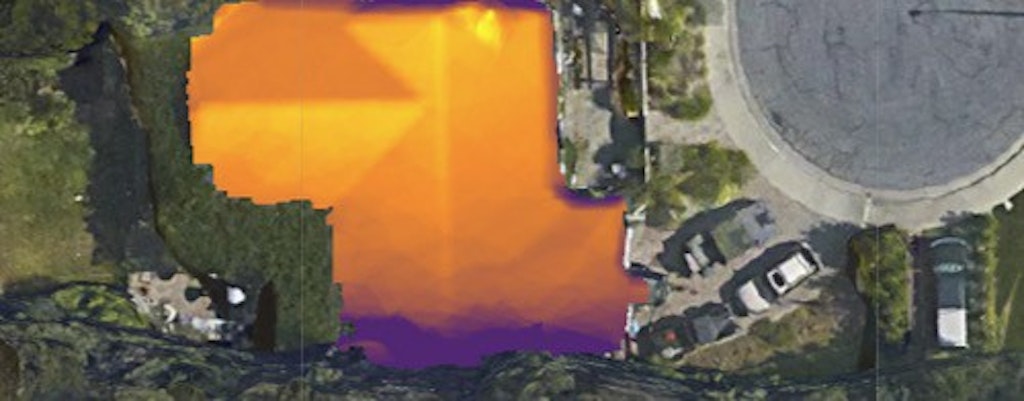On August 17, Google announced Project Sunroof, a tool that allows homeowners to easily visualize their rooftop solar access and potential savings.
It’s currently only available in limited areas (near San Francisco, Boston, and Fresno), but a nationwide rollout is on the horizon.
Project Sunroof’s Auto Roof Solar Analysis

Project Sunroof makes it much easier to assess whether a home is suitable for solar energy. A homeowner interested in solar energy simply needs to enter their address and Sunroof will automatically calculate and display a graph showing how much sun the roof is receiving.
From there, Google offers a list of local installers who advertise with them. DIY types can also buy and install their own solar systems if the roof is suitable. If there isn’t good rooftop coverage, Unbound Solar can help potential buyers see if their property has room for a ground-mounted array. call us at 1-800-472-1142.
How does Project Sunroof work?
How does the Sunroof work? Google aggregates diverse sets of solar data.
- Google aerial imagery and map database
- 3D modeling of roofs
- Shadows of nearby structures and trees
- All possible positions of the sun in a year
- Historical cloud and temperature patterns that can affect solar power generation
Data is processed and combined in an easy-to-use, Google Maps-like interface. Done manually, each step of this process would require the homeowner hours of data collection and analysis.
Automating the sunroof makes the process much easier.
Solar analysis before and after project Sunroof
Before Sunroof, there were similar tools for evaluating the potential of a sunroof. However, they required the user to manually draw their roofs and did not take into account nearby obstacles (trees, buildings, etc.) that could cause shadowing of the roof.

Now, using 3D aerial data collected by Google for this project, even trees and other obstacles are taken into account and included in their analysis;

Next steps
Does the roof look good? Then you’re ready to move on to the next steps. From our Getting Started Solar guide:
- Reduce your energy use. The more energy you save and the more efficient your appliances are, the fewer panels you’ll need, which means more savings for you.
- Decide what kind of system you need, whether it’s networked, offline, or in between.
- Determine the appropriate size for your networked system or offline system.
- Call us at 1-800-472-1142 and we’ll help you choose the best system for your needs.
If you are confused about any of the steps, feel free to give us a call and one of our Solar Technicians can guide you through the process.



